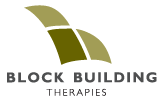Block Building Therapies Exposure Therapy Program
Criteria for Participation
Purpose of the Program:
Our Occupational Therapy (OT) Exposure Therapy Program is designed to help clients gradually confront and reduce fears, anxieties, or trauma-related experiences that impact their ability to function at home, in the community, and/or at work. Each client will be assessed to determine eligibility for the program.
Eligibility Criteria:
To ensure effective participation and outcomes, clients must meet the following criteria:
- Initial Readiness and Commitment
- Demonstrate a willingness to engage in a structured rehabilitation process.
- Express a desire to take an active role in identifying and achieving exposure therapy goals.
- Understand and agree to the program’s purpose and timelines, including the expectation to transition to higher levels of rehabilitation (typically return-to-work rehab) if progress is evident.
- Demonstrate the physical, cognitive, and emotional capacity to attend and participate in therapy sessions as scheduled. This advanced therapy modality is for clients who are resourced and equipped with coping skills for emotional stress.
- It is strongly recommended that clients are already working with a psychologist, have developed a toolkit of coping strategies, have begun imaginal exposure therapy, and have been attending in-person sessions.
- If clients are not yet resourced with the necessary coping skills, they may be referred to our Behavioural Activation Program to help build these skills and support readiness for advanced rehabilitation, such as exposure therapy.
2. Progress-Oriented Participation
Clients who tend to have the most success in exposure therapy are those who demonstrate that they are in the preparation or action phases of the Stages of Change model, which is determined through our assessment process. If the client is determined to be in the contemplation or pre-contemplation stage(s) of change, one of two outcomes will occur:
- If the client demonstrates a willingness to participate beyond their duty to their insurer to adhere to treatment (i.e. they must show some enthusiasm, buy-in, and/or interest in the therapy process), they will be admitted to our Behavioural Activation Program. The client will be reassessed approximately every three months to monitor progress and determine if their readiness for change has increased.
- If the client demonstrates neither readiness nor interest in the therapy process, alternative mental health services will be recommended with the option for the client to be re-referred when specific readiness criteria are met (these criteria will be included in the OT report).
3. Timelines
Clients must be willing and able to participate in treatment for a minimum of 3 months, no longer than 12 months, if accepted into the program. To ensure optimal therapeutic benefit, sessions must be scheduled at least weekly.
Discharge Guidelines:
- Clients will be discharged from the program at the one-year mark unless they meet clear criteria for continued participation, including demonstrable progress and active engagement in exposure therapy and readiness for return-to-work rehabilitation (if indicated).
- Early discharge may occur if it becomes evident that the client is not progressing or is not meeting therapy goals despite therapist support and program adaptations. This would be determined through regular re-assessment.
For more information or to refer a client, contact us at 204-231-0785
or visit www.blockbuilding.ca for referral forms.












